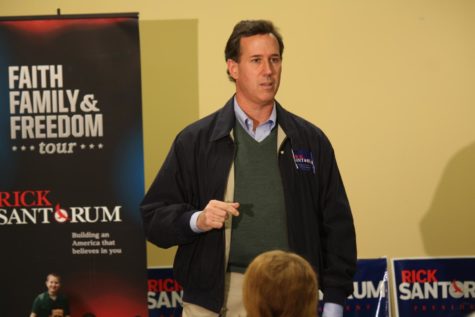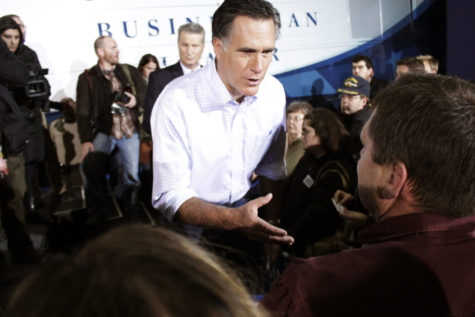Cline: Public figures have a right to privacy
December 2, 2011
Bill Clinton set a new standard. Whether it was raising or lowering the bar, he created a whole new level of scandal and moral ineptitude. Unfortunately, it scarred an otherwise successful presidency and ruined a once promising legacy. Clinton became a victim of our society’s prying, obsessive nature. We expect our public figures to be flawless and perfect in every fashion.
However, this reasoning that our public officials need to be morally idealistic in their personal lives should have no bearing on how we judge them as politicians. Herman Cain is the lightning rod of judgment among this year’s GOP stable. Cain’s first offense came in form of sexual harassment allegations by former female workers at the National Restaurant Association.
There is nothing commendable about sexual harassment or the allegations against Cain. Though I don’t agree with his actions, Cain’s alleged ethical shortcomings do not change my views on his political beliefs. What a man or woman does in their personal life does not necessarily reflect how much they could do to replenish our economy or work diplomatically overseas.
Richard Nixon used his political power and leverage to mastermind Watergate, and Warren Harding made a mockery of the executive office in executing the Teapot Dome Scandal. These crimes reflected their true character as amoral criminals with premeditated plans, not brief lapses in judgment.
Cain is just the earliest casualty. As the campaigns mushroom and mudslinging grows, stories and scandals are likely to come to the surface. If we find out that Michele Bachman was a black market kingpin or that Rick Santorum was connected to a child prostitution ring, these types of offenses are serious enough to eliminate them from public office. However, just hearing them is not severe enough. They need to be substantiated and seeded in truth.
No crime should go unpunished, but everything needs to be examined in context. If it comes out that Cain is a rampant offender and further accusations arise that are more serious and true, then we have probable cause to doubt him. If the affair was consensual, then that is his own personal business. The alleged sexual harassment is a more serious issue, but again something that should stay between Cain and the women involved.
Midway through writing this column is when I first heard about Cain’s alleged infidelity. As Nelson Rockefeller can attest to, presidential campaigns can be derailed by cheating and divorce. To this day, Ronald Reagan is the only divorced man to rise to the presidency.
Being a committed, family man is an admirable characteristic, but it does not mean anything in regards to political guidance. Clinton cheated but he did a great deal more for this country than his predecessor, dedicated family man George H.W. Bush. James Buchanan, probably best known as the guy who was president before Abraham Lincoln, was able to achieve the executive role as a bachelor — could you imagine a single man doing that today?
In a change that is likely to be well appreciated by public officials, Americans are finally coming around and examining candidates based on their policies and platforms. In a recent Pew Research Poll, 49 percent of voters said that an affair would not affect their likelihood of voting for a candidate. This number is still not the majority, but it outweighs the 46 percent of voters in the poll who said it would cause to vote for another candidate.
Presidents, congressmen, governors and city council members are quite possibly, and likely do, commit more egregious acts than what Cain is being accused of. They are in pocket of bureaucrats and slaves to the dollar. They throw constituents under the bus for their own personal gain. It may vary by perspective, but betraying millions seems to be a more callous act than what Cain or Newt Gingrich have done in their pasts.
As we progress into caucus season, things could only get worse. Muckraking is going to intensify and accusations will become more frivolous. To this point, no one is guilty of a John Edwards-level moral fallacy. That is where the line is crossed. Anthony Weiner sending explicit photos was downright stupid, but cheating on a woman dying of cancer with which a man has spent his adult life, moral ineptitude.
We have become obsessed with knowing every detail or tabloid headline. If a candidate’s economic plan or proposals on peacekeeping in the Middle East are too complex to grasp, we look for something simpler yet intriguing to use as information.
We the voters have a right to know all applicable information about the people we elect to run our country. They have the right to keep unrelated information to themselves. Guiding the most powerful nation in the country should be done by people with strong political ideologies and the ability to lead people, regardless of how many times they go to church in a week or how flawless their family life is.
Good people are capable of bad things and bad people are capable of good things. We’d like to our leaders and global representatives to be respectable and reflections of who we are. However, if we do not always act in an ethically ideal manner, then we have no right to pressure politicians into being flawless.








